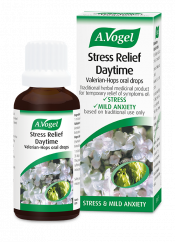An introduction to treating depression
The first step to treating depression is to have your condition diagnosed or confirmed by a doctor.
A number of types of depression have been identified and the condition affects individuals in different ways. It is important to discuss all symptoms experienced with your doctor, who will aim to find the most appropriate and effective methods of treatment for you. As there is a wide choice of therapies, this may take a bit of time and patience is sometimes needed. For most suffering the problem, depression is a very treatable condition.
True depression (as distinct from feeling low in mood) is a condition which should be managed by your GP or a hospital specialist. As with other medical conditions, your doctor may recommend that you start with a method least intrusive to your body, or a medicine at the lowest dose. This is to reduce the impact on other aspects of your health.
Talking therapies
This is the name used for a group of treatments which include counselling, psychotherapy and cognitive behavioural therapy.
Talking therapies are usually the treatment of first choice for mild or moderate depression. They may be employed on their own, or with medicines prescribed by your doctor, particularly in severe cases of depression.
Depending on your problem, you will see a GP, nurse, psychiatrist or psychologist. Your therapist should be someone you feel comfortable with and regular sessions will give you the best results.
Every therapist will work in a different way but each will encourage you to open up about your problems. This can be difficult and even painful at first but in the long run, it is a key step towards recovery. It is important to remember that talking therapy is not an immediate fix, but is more likely to have long lasting effects if you stick with the treatment.
Cognitive Behavioural Therapy
Often referred to simply as CBT, this is one of the talking therapies discussed above but deserves further attention. This form of therapy is designed to change how an individual thinks and acts. It replaces any thoughts or actions making one prone to depression with ones which are going to be of benefit.
For example, negative thoughts are replaced with positive ones. Over time, this changes the thinking ‘habit’ of the individual, improving their condition. It can help an individual overcome any experience they find difficult or scary (eg. communicating with others).
CBT has been shown to be as effective as some conventional anti-depressants in mild and moderate depression. In severe cases, it can be used to complement the effects of prescribed anti-depressants. CBT treatment courses tend to last around 15 weeks.
Bright light therapy
The hormones serotonin and melatonin have a significant impact on mood. Often people with depression have high levels of melatonin but not enough serotonin. The production of these hormones is influenced by exposure to light - when the body is exposed to light, the brain produces more serotonin, making you happy, and less melatonin, making you feel more energetic.
Bright light therapy exposes the body to a certain wavelength of light for a number of hours per day in order to regulate the production of these two key hormones.
Bright light therapy is particularly effective for Seasonal Affective Disorder, a type of low mood or mild depression common in the Northern Hemisphere, particularly in the extreme northern latitudes where hours of sunlight are dramatically reduced during the winter months. However, it is also effective for other types of depression where a boost of serotonin helps to lift mood.
Herbal remedies
St. John’s wort is well-known as a traditional herbal remedy for people feeling low in mood, as well as for those with mild to moderate cases of depression . It can be used to complement talking therapies or light therapy but in general, should not be used together with conventional prescribed medication.
This herb, also known as Hypericum perforatum, is one of the best researched plant extracts and works by influencing the level of neurotransmitters in the brain.
If you are suffering from depression and your doctor is treating you with prescribed medication, it is important to seek his advice before taking any form of herbal remedy.
Conventional treatments
The diagnosis of depression should always be confirmed and treated by your GP or a hospital doctor. Treatment options will be discussed and if your problem is moderate or severe, it is likely that he will prescribe some kind of anti-depressant drug.
There are about 30 different types of anti-depressants available and it may take a little time before the most effective solution for your problem is found. In general, these work by influencing the levels of chemicals in the brain in order to produce different and happier moods.
In some, however, conventional anti-depressants may cause side-effects such as sickness or insomnia, although these should reduce in intensity as your body gets used to the medication. They generally need to be used long term.








